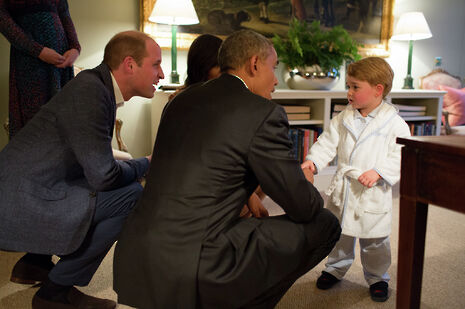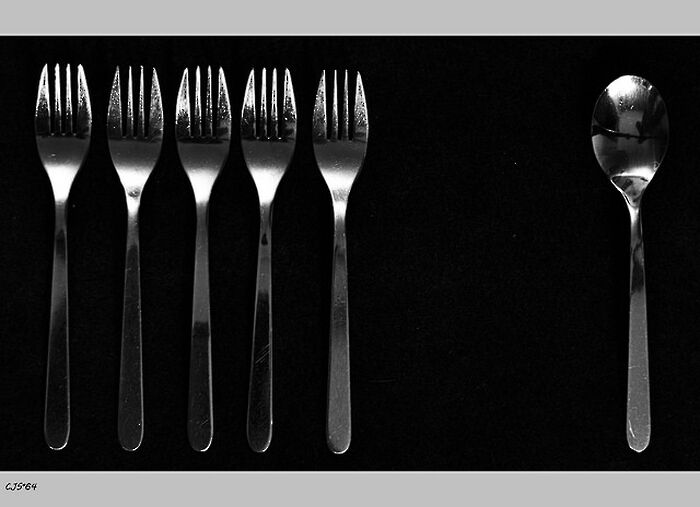The monarchy provides a welcome break from bad news
Blanca Schofield-Legorburo wrestles with how such a problematic concept as the monarchy still has the capacity to cheer us up

Growing up in Dublin with an Anglo-Irish father and a Spanish mother, my exposure to the monarchy has been a mixed affair. On the one hand, I'm angered about the pain caused by the Queen and her ancestors in Ireland, and scoff at her stuffiness. On the other, I, like 1.3 million other Irish viewers (about a quarter of the Republic’s population), watched the royal wedding of the Duke and Duchess of Cambridge, in addition to 24 million viewers in the UK, and would probably watch today if Harry and Meghan ever tie the knot. And when Prince George started school this month, I flicked through the pictures like millions of others.
Why is there such a fascination with the monarchy in this country when in Spain two-thirds of the population would like to see a referendum on their constitutional monarchy in the future? During a time of such controversy over government cuts, including to our beloved NHS, it is difficult to understand how 75% of the UK still condones, even adores, this family which is the pinnacle of privilege and costs taxpayers an estimated £200 million a year.
"The Crown’s overarching positivity renders it an easy, relaxing watch. And at the end of the day, most Brits find them comforting"
The main justification of monarchy is unity. Indeed, this argument is still very much valid in England. At the Brexit vote's 15-month anniversary, Theresa May’s prophecy of Britain becoming “a more united nation” is nowhere near fulfilment, and British identity is in crisis. Tens of thousands attend Remain and For Europe marches, while Leavers are just as adamant. May herself faces the worst approval ratings of any PM after an election. In such turmoil, would a president of a British republic really unite the country and inspire duty better than 91-year-old Elizabeth?
Given the support recorded of Macron, probably not. And while the president of the American republic may have united his country momentarily, it is at a great cost, and has been fraudulently achieved. A republic might now be feasible in Spain, but there are two main differences in England: there is not the same resentment over a recent civil war and totalitarianism, and the monarchy still represents that traditional British identity which most want to hold on to - now more than ever.
However, while the Queen is theoretically the symbol of duty and identity in this country, many do not take her very seriously. Only 21% of 18-34 year olds see her as hard-working and dedicated. The monarchy is even more irrelevant nowadays in its supposed protection of our constitution-less democracy, as the power-grabbing EU Withdrawal Bill that passed recently demonstrated. Yet perhaps this fuzzy irrelevance is another reason why the monarchy is still so well supported. Through being even more apolitical than ever, it gives us a constant stream of human interest stories in the face of the onslaught of bad news which we devour every day.
Channel 4’s most-watched documentary of the year, The Diana Tapes, may have brought the Queen’s empathy back into question, but it also continued the monarchy’s most important role of the last 20 years: providing a welcome distraction. Diana’s life continues to be pertinent because, through living it quite openly, she made the public feel better. Stories of her charity work, such as being one of the first celebrities to shake an AIDS victim’s hand, were cheering. In Spain, news of the more private monarchy is often negative, with stories of money-laundering and division. Here, photos of Prince George going to primary school, however expensive, are loved because they are an adorable, refreshing start to the day. The Crown’s overarching positivity renders it an easy, relaxing watch. And at the end of the day, most Brits find them comforting.
In the coming years of Brexit catastrophe, refugee crises, Trump-mania and general strife, the British monarchy will most likely continue to be a warm respite. Does the monarchy even benefit the UK economically? Not really; no royal residences even appear in the top 20 tourist locations in England. Yet, as George Danker from the Cambridge Union wrote in 2012, “we do like the monarchy, and that should be enough for now”.
The modern monarchy provides the UK with mainly good, unifying news, given that it has no real power any more. Is it morally questionable that we still need this expensive family with a hereditary power structure to unify and cheer the country up? Probably, but we need all the happiness we can get
 News / Cambridge academics stand out in King’s 2026 Honours List2 January 2026
News / Cambridge academics stand out in King’s 2026 Honours List2 January 2026 Interviews / You don’t need to peak at Cambridge, says Robin Harding31 December 2025
Interviews / You don’t need to peak at Cambridge, says Robin Harding31 December 2025 Comment / What happened to men at Cambridge?31 December 2025
Comment / What happened to men at Cambridge?31 December 2025 Features / “It’s a momentary expression of rage”: reforming democracy from Cambridge4 January 2026
Features / “It’s a momentary expression of rage”: reforming democracy from Cambridge4 January 2026 News / AstraZeneca sues for £32 million over faulty construction at Cambridge Campus31 December 2025
News / AstraZeneca sues for £32 million over faulty construction at Cambridge Campus31 December 2025










